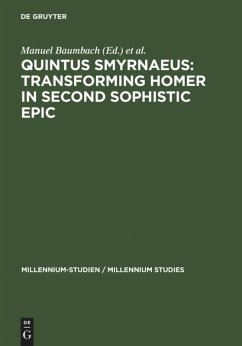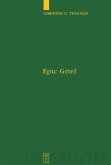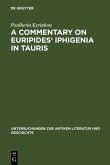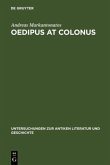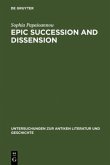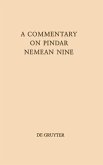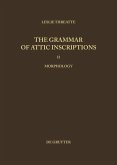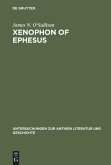The â??Events after Homerâ?, described by Quintus Smyrnaeus in the third century AD in his Greek epic Posthomerica, are an attempt to bridge the gap between the Iliad and the Odyssey , and to combine the various scattered reports of the battle for Troy into a single tale: the fate of Achilles, Ajax, Paris and the Amazon Penthesileia, the intervention of Neoptolemos and the story from the Trojan horse to the destruction of the city. The volume presented here summarizes the results of the first international conference on Quintus Smyrnaeus.
Die "Ereignisse nach Homer", die Quintus Smyrnaeus wohl im 3. Jh. n.Chr. in seinem griechischen Epos Posthomerica beschreibt, sind ein Versuch, die Lücke zwischen Ilias und Odyssee zu schließen und die bis dahin verstreut überlieferten Berichte über den Kampf um Troja erzählerisch zu vereinen. Obschon das Epos in künstlerischer und populärer Rezeption (wie in Gustav Schwabs Schönsten Sagen des klassischen Altertums) breit gewirkt hat, fand eine wissenschaftliche Auseinandersetzung mit den Posthomerica bislang nur am Rande statt.
Der vorliegende Sammelband arbeitet unter Berücksichtigung moderner Forschungsansätze intertextuelle Dialoge, narratologische Eigenheiten und stilistische wie inhaltliche Besonderheiten heraus. Die 16 Beiträge geben einen Einblick in werkimmanente Aspekte (Spannungsaufbau, Poetologie, Erzähltechnik) und untersuchen den Einfluss des literarischen Umfelds und insbesondere der Zweiten Sophistik auf Quintus anhand von werkübergreifenden, intertextuellen Fragestellungen und Fragen der Gattungsgeschichte: Wie lässt sich Quintus innerhalb der epischen Tradition einordnen, welchen Einfluss hat sein Werk auf spätere Epen der Kaiserzeit, wie erfolgreich ist sein Programm des Brückenschlags zwischen Ilias und Odyssee letztlich gewesen?
Die "Ereignisse nach Homer", die Quintus Smyrnaeus wohl im 3. Jh. n.Chr. in seinem griechischen Epos Posthomerica beschreibt, sind ein Versuch, die Lücke zwischen Ilias und Odyssee zu schließen und die bis dahin verstreut überlieferten Berichte über den Kampf um Troja erzählerisch zu vereinen. Obschon das Epos in künstlerischer und populärer Rezeption (wie in Gustav Schwabs Schönsten Sagen des klassischen Altertums) breit gewirkt hat, fand eine wissenschaftliche Auseinandersetzung mit den Posthomerica bislang nur am Rande statt.
Der vorliegende Sammelband arbeitet unter Berücksichtigung moderner Forschungsansätze intertextuelle Dialoge, narratologische Eigenheiten und stilistische wie inhaltliche Besonderheiten heraus. Die 16 Beiträge geben einen Einblick in werkimmanente Aspekte (Spannungsaufbau, Poetologie, Erzähltechnik) und untersuchen den Einfluss des literarischen Umfelds und insbesondere der Zweiten Sophistik auf Quintus anhand von werkübergreifenden, intertextuellen Fragestellungen und Fragen der Gattungsgeschichte: Wie lässt sich Quintus innerhalb der epischen Tradition einordnen, welchen Einfluss hat sein Werk auf spätere Epen der Kaiserzeit, wie erfolgreich ist sein Programm des Brückenschlags zwischen Ilias und Odyssee letztlich gewesen?
"Overall, this volume is a welcome addition to scholarship on imperial Greek poetry and provides fresh and exciting new directions for the study of Quintus of Smyrna and late Greek literature generally. It is highly recommended for readers interested in intertextuality/reception studies, the Second Sophistic, or late antiquity generally."
Vincent Tomasso in: BMCR 2008.09.58
Vincent Tomasso in: BMCR 2008.09.58

